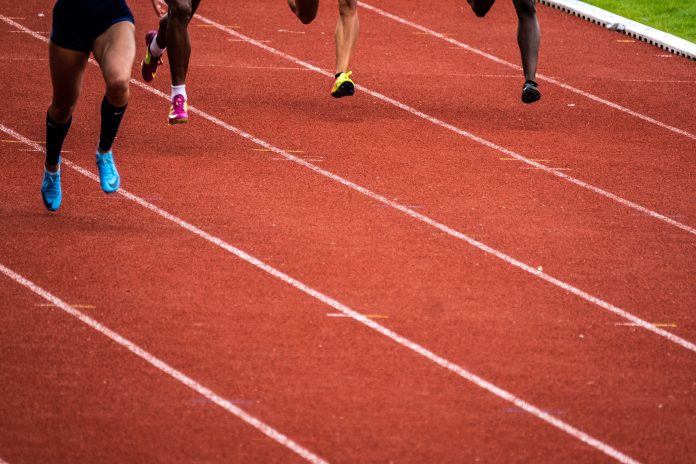
Through running, I have gained incredible friendships. Many of these friends are also my competition. My toughest competitors in high school, Brian and Alex, became two of my greatest friends. Collegiately, I have had the privilege of building companionship with ‘rival’ runners from Wabash College. This summer, I had the opportunity to run with fellow competitor Charles Rodeheffer of Wittenberg University and, while I was in Granville, OH a few weeks ago, I was able to join the Denison University cross country team for a trail run.
I have always (biasly) felt that runners tend to be more compassionate towards their competitors. This is not to say that compassion does not exist in other sports—as it certainly does—but I believe running lends itself to a unique dynamic of compassionate competition.
Misery Loves its Company
There is something pure about the sport of running: the exhaustion. No matter how trained, confident, or practiced a runner is with managing pain, pushing oneself to the utmost limit still hurts—a lot.
In her blog-post “The Case for Selflessness: How empathy and compassion make you a better runner,” Amy Friel writes, “when an athlete’s mind is preoccupied with concern for the well-being of a competitor, it becomes much easier to ignore their own discomfort and push on” and “when you spend your time encouraging the efforts of others, your own internal monologue—what psychologists call your “self-talk”—becomes correspondingly more positive and encouraging”. Compassion for competitors may have a very practical purpose.
A common energy of excitement and nervousness surrounds runners on the start-line of a race. Doubt can appear in the back of the mind: am I capable of running as fast as I hope? The mind becomes anxious; soon, the body will again enter the tunnel of corporeal suffering. Riley Hickman, a junior on DePauw’s cross country team, says she often jokes with other runners on the start-line because it “eases the stress” of an impending race. Racing is stressful, racing hurts. A little compassion can help.
A Shared Experience
Dominic Patacsil, an NCAA All-American cross country runner for Wabash College links compassion for competitors to the shared experience of racing saying, “Running forces its competitors to incur the same obstacles. Namely, the course, the distance, the weather. All those factors are shared wholly among those who compete . . . at the end, we can all look around at one another and say, “Hey, we did this. We shared all the same sensations that brought us to this point”.
The True Opposition: Yourself
The competitive dynamic of running is unique—runners can't reach their full potential alone. Racing is really only “against yourself”. What is keeping you from running faster is your own mind and body, not other runners. In fact, other runners help you run faster by motivating you to finish ahead of them. Competing runners regularly work together in races by running in packs, sharing pacing duties, and working as a group to run their best possible time. To run faster, you need your competition as much as your competition needs you. This is a reality many runners recognize and celebrate.
